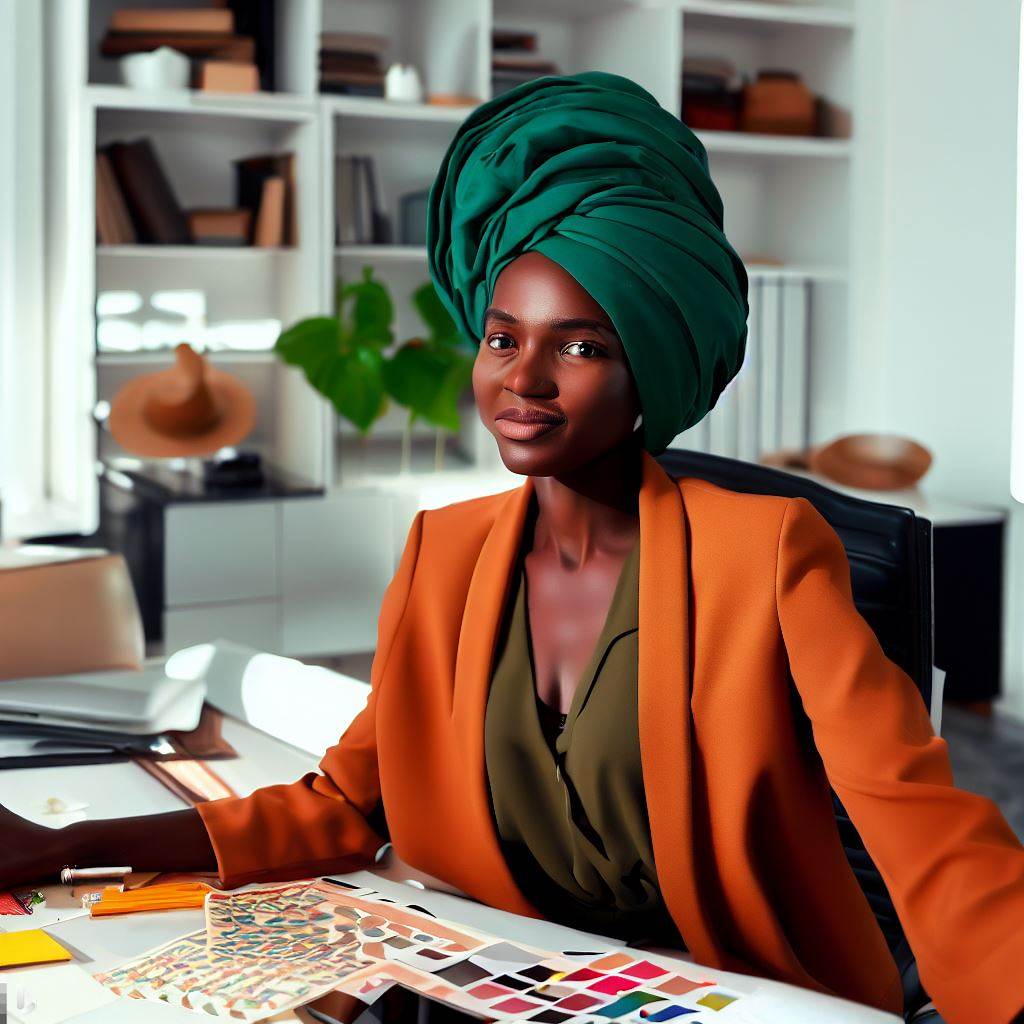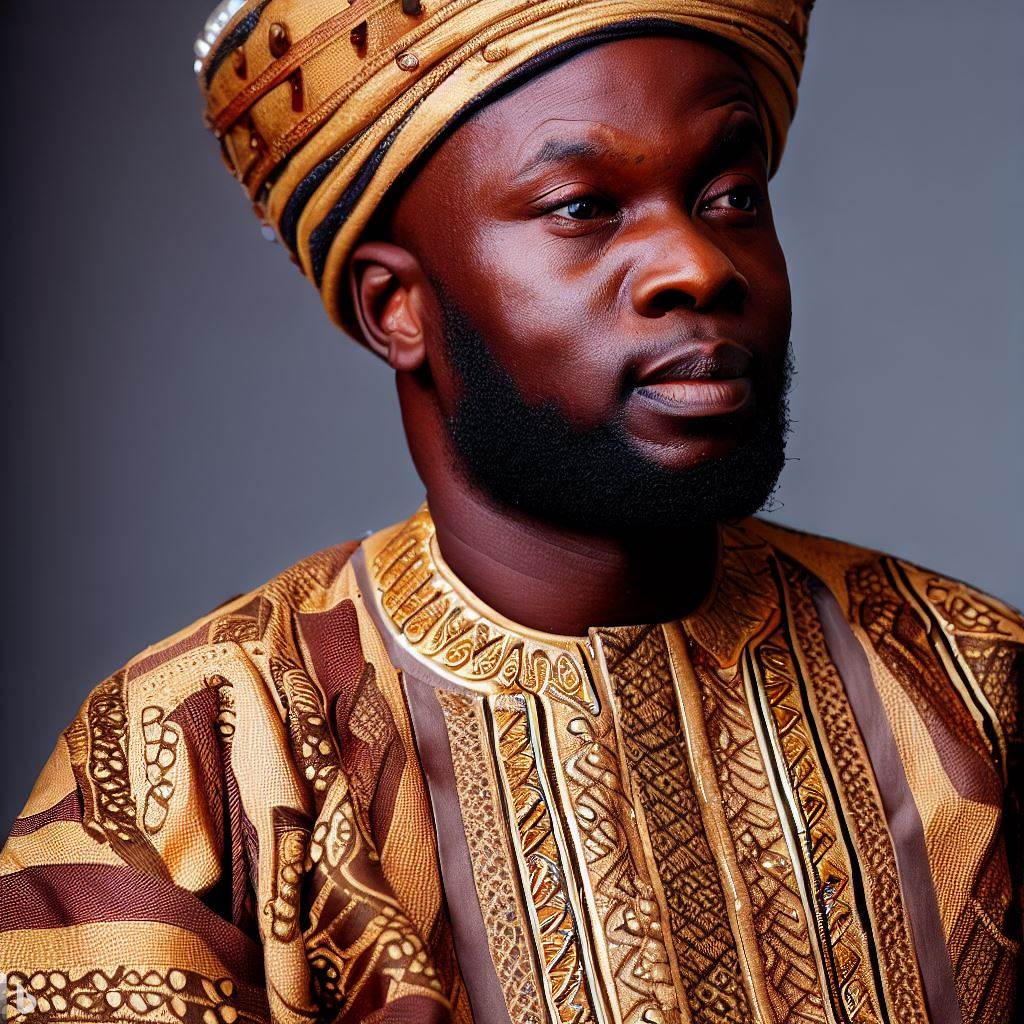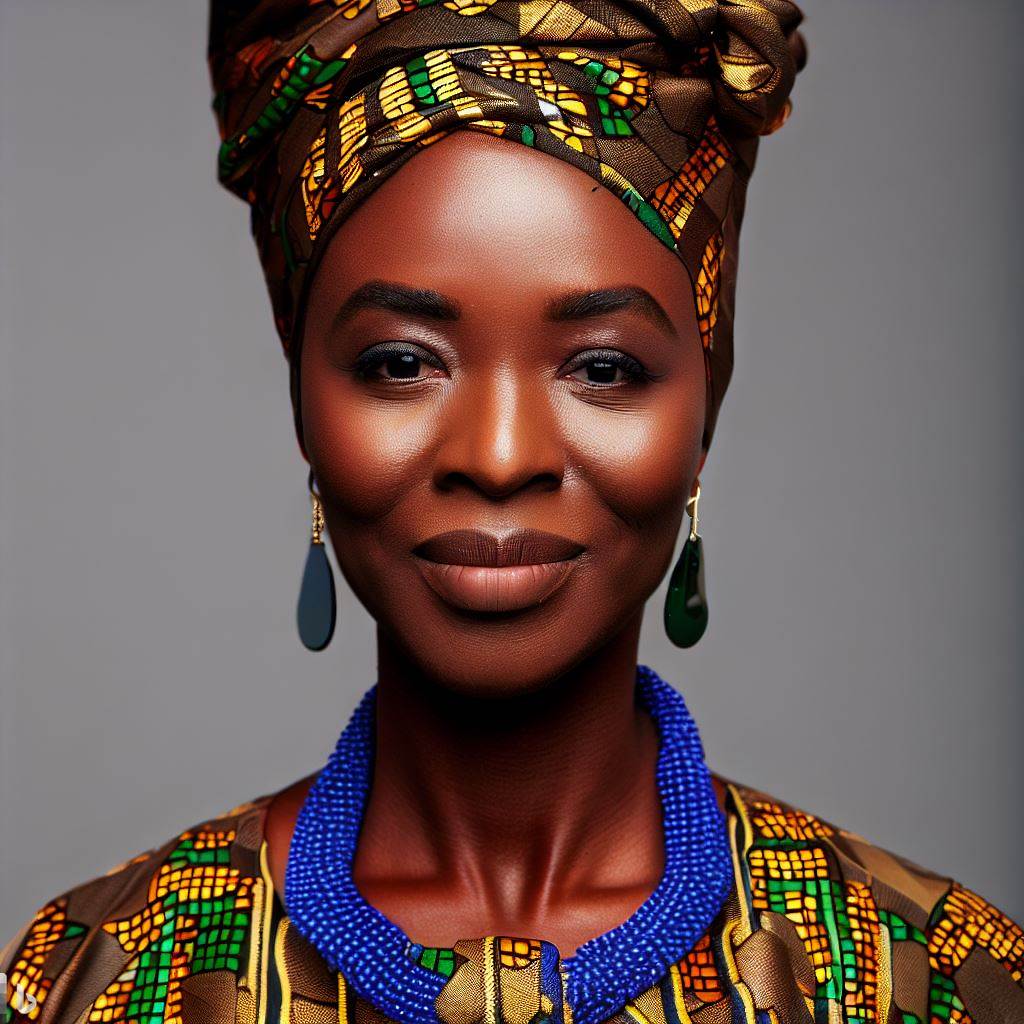Introduction
Interior design refers to the art and science of enhancing the interior of a space.
Interior design holds significant importance in Nigeria as it promotes comfort, functionality, and aesthetic appeal.
Modern trends in interior designing in Nigeria include minimalism, use of natural materials, and blending traditional and contemporary elements.
Definition of interior design:
Interior design is the art of enhancing interior spaces, creating functional, aesthetically pleasing environments.
Importance of interior design in Nigeria:
- In Nigeria, the interior design holds immense significance, reflecting the cultural heritage and personal style.
- It elevates living spaces, improving comfort, functionality, and well-being.
Overview of modern trends in interior designing:
- Biophilic Design: Bringing nature indoors with greenery and natural materials for a harmonious ambiance.
- Minimalism: Embracing simplicity, decluttering spaces, and maximizing functionality.
- Cultural Fusion: Blending traditional Nigerian motifs with contemporary elements for a unique aesthetic.
- Smart Homes: Integrating technology for convenience, security, and energy efficiency.
- Sustainable Design: Eco-conscious choices like recycled materials and energy-saving solutions.
- Open Floor Plans: Creating versatile spaces for family gatherings and entertainment.
- Bold Colors and Patterns: Adding vibrancy and personality to interiors.
- Multifunctional Furniture: Maximizing space with adaptable furnishings.
- Vintage Revival: Incorporating retro pieces for a touch of nostalgia.
- Customization: Tailoring designs to individual preferences and needs.
In Nigeria, modern interior design trends reflect a dynamic fusion of tradition and innovation, creating spaces that are not only beautiful but also functional and culturally resonant.
Traditional Nigerian Influences on Interior Design
Use of vibrant colors and patterns
Nigerian interior design is known for its use of vibrant colors and bold patterns throughout the space.
Bright hues such as red, orange, and yellow are often incorporated into the walls, furniture, and accessories, creating an energetic and lively atmosphere.
Incorporation of local materials and craftsmanship
Another distinctive aspect of Nigerian interior design is the incorporation of local materials and craftsmanship.
Traditional elements such as clay, wood, and woven fabrics are used to create unique pieces of furniture and decor, showcasing the rich cultural heritage of the country.
Emphasis on cultural motifs and symbols
Nigerian interior design also places great emphasis on cultural motifs and symbols.
These can be seen in the artwork, wall hangings, and textiles used in the space, which often depict traditional symbols and designs that hold significant meaning in Nigerian culture.
By combining vibrant colors, local materials, and cultural motifs, Nigerian interior design provides a unique and authentic experience.
The use of vibrant colors and patterns adds a sense of liveliness and energy to the space, creating a welcoming and joyful atmosphere.
The incorporation of local materials and craftsmanship not only showcases the talent and skill of Nigerian artisans but also promotes sustainability and supports the local economy.
Traditional materials such as clay and wood not only add a natural and organic touch to the space but also remind inhabitants of their connection to the land and environment.
The emphasis on cultural motifs and symbols in Nigerian interior design reflects the country’s rich history and cultural diversity.
These motifs and symbols hold deep meaning and significance, telling stories and reflecting the values and beliefs of the Nigerian people.
They serve as a reminder of the importance of preserving and celebrating cultural heritage.
Basically, Nigerian interior design is heavily influenced by traditional elements such as vibrant colors, local materials, and cultural motifs.
These elements come together to create a unique and authentic aesthetic that celebrates the country’s cultural heritage.
By incorporating these influences into modern interior design, Nigeria is able to showcase its rich history and promote sustainable practices, while also creating spaces that are vibrant, welcoming, and meaningful.
Read: Building a Portfolio: Tips for Nigerian Interior Designers
Minimalism and Functionality
When it comes to modern trends in interior designing, minimalism and functionality are two key aspects that cannot be ignored.
In Nigeria, these concepts have gained popularity as they provide a fresh and contemporary approach to interior design.
Clean lines and simplicity in design
One of the main characteristics of modern interior design is clean lines and simplicity. This means that the design focuses on creating a clutter-free space with minimal decorations.
In Nigeria, interior designers are embracing this trend by using sleek furniture and minimal accessories. The emphasis is on creating a calm and serene environment that is free of unnecessary distractions.
Optimizing space and functionality
In a country like Nigeria where space is often limited, optimizing space and functionality is crucial. Interior designers are now finding innovative ways to make the most out of small spaces.
They are utilizing every inch of the room by incorporating clever storage solutions and multifunctional furniture.
This not only maximizes the available space but also adds functionality to the design.
Integration of technology in interior design
With the advancement of technology, interior designers in Nigeria are now incorporating smart home technology into their designs.
This includes features like automated lighting, temperature control, and security systems.
By integrating technology, interior designers are able to create homes that are not only visually appealing but also efficient and convenient for the residents.
Generally, minimalism and functionality are key elements of modern interior design in Nigeria.
By embracing clean lines and simplicity, interior designers are able to create a calm and clutter-free environment.
Optimizing space and functionality allows them to make the most out of limited space and create a practical design.
Additionally, the integration of technology adds convenience and efficiency to the overall design.
These trends reflect Nigeria’s perspective on modern interior design and are sure to continue shaping the future of interior design in the country.
Eco-Friendly Designs
Sustainable materials and sourcing
Nigeria’s modern interior design trends are increasingly focused on eco-friendly designs.
One important aspect of this is the use of sustainable materials and sourcing.
Interior designers in Nigeria are now opting for materials that have a low impact on the environment.
They prioritize using renewable resources, such as bamboo, cork, reclaimed wood, and recycled materials.
These materials not only reduce carbon footprint but also give a unique and natural touch to the space.
Energy-efficient features and technologies
Another key facet of eco-friendly designs is the incorporation of energy-efficient features and technologies.
Nigerian interior designers are making use of energy-saving appliances and installing smart devices to minimize energy consumption.
This includes energy-efficient lighting systems, smart thermostats, and solar panels. These features help decrease electricity bills and promote sustainable living.
Natural lighting and ventilation
A major element of eco-friendly design in Nigeria is the emphasis on natural lighting and ventilation.
By maximizing the use of natural light through large windows, skylights, and light-colored walls, interior designers are able to reduce reliance on artificial lighting and decrease energy consumption.
This not only creates a pleasant ambiance but also brings the outside environment indoors.
In addition, proper ventilation techniques, such as strategic placement of windows and the use of ceiling fans, enable efficient airflow and reduce the need for air conditioning.
By utilizing natural elements, Nigerian interior designers strive to create comfortable and sustainable spaces.
Essentially, eco-friendly designs are gaining popularity in Nigeria’s interior design industry.
This trend highlights the importance of sustainable materials and sourcing, energy-efficient features and technologies, as well as natural lighting and ventilation.
By embracing these practices, Nigerian interior designers contribute to creating environmentally conscious spaces that promote a healthier and greener way of living.
Read: Sustainability in Nigerian Interior Design: Practices & Insights
Blending Traditional and Modern Styles
Incorporating traditional and modern styles is a popular trend in interior design in Nigeria.
It involves blending traditional elements with contemporary designs, creating a unique Nigerian aesthetic.
Fusion of traditional elements with contemporary designs
In Nigeria, interior designers are increasingly combining traditional elements like tribal motifs, handcrafted furniture, and local artwork with modern design concepts.
This fusion creates a visually interesting and culturally rich space.
For example, a living room might feature a traditional African print rug paired with sleek, minimalist furniture.
This juxtaposition of styles adds depth and character to the room, while also celebrating the country’s heritage.
By incorporating traditional elements into modern spaces, designers are able to bridge the gap between the past and present, creating a harmonious and balanced design.
Creation of a unique Nigerian aesthetic
Nigeria has a rich cultural heritage, and many interior designers strive to incorporate these elements into their work.
By blending traditional styles with modern designs, they are able to create a unique Nigerian aesthetic that is both timeless and contemporary.
One way designers achieve this is by using traditional Nigerian materials and craftsmanship in their designs. This might include woven textiles, pottery, or woodwork.
By using these materials, designers are able to create a sense of authenticity and connection to the country’s roots.
Another aspect of the Nigerian aesthetic is the use of vibrant colors and patterns.
Traditional Nigerian textiles and art are known for their bold and vibrant hues, and designers often incorporate these colors into their designs to add vibrancy and energy to a space.
Balancing cultural heritage with modern living
While incorporating traditional elements is important, it is also crucial to strike a balance between cultural heritage and modern living.
The goal is to create a space that feels contemporary and functional while still paying homage to Nigeria’s rich traditions.
This can be achieved through thoughtful space planning and the use of modern amenities.
For example, a kitchen with traditional Nigerian-inspired design might feature modern appliances hidden behind traditional wooden cabinets.
Lighting is another important aspect of balancing cultural heritage with modern living.
Traditional Nigerian lanterns or woven pendant lights can be integrated into a modern space, creating a warm and inviting atmosphere while still maintaining a contemporary feel.
Ultimately, the blending of traditional and modern styles in interior design in Nigeria allows for the creation of spaces that are both culturally rich and visually appealing.
By embracing the country’s heritage and incorporating it into modern designs, designers are able to celebrate Nigeria’s unique aesthetic while also creating functional and beautiful spaces for people to live and enjoy.
Read: Nigeria’s Interior Design Trends: What’s Hot in 2023?

Bold and Vibrant Colors
Use of bright hues to create lively spaces
One of the modern trends in interior design in Nigeria is the use of bold and vibrant colors to create lively and energetic spaces.
Gone are the days of dull and monotonous color palettes. Designers are now embracing the power of bright hues to bring life and personality to interiors.
Incorporation of colorful artworks and accessories
Another way designers are incorporating bold and vibrant colors is through the use of colorful artworks and accessories.
These elements not only add visual interest to a space but also serve as a means of self-expression and reflection of the homeowner’s personality.
The diversity and richness of Nigerian culture
In addition to creating lively spaces, the use of bold and vibrant colors also helps in highlighting the diversity and richness of Nigerian culture.
Nigeria is known for its vibrant traditions and cultural heritage, and incorporating these colors into interior design is a way of celebrating and embracing Nigerian identity.
Use of bold and vibrant colors in interior design
The use of bold and vibrant colors in interior design has become increasingly popular in Nigeria, reflecting the changing tastes and preferences of homeowners.
Bold colors not only create visually striking spaces but also have psychological effects on individuals, influencing mood, energy levels, and overall well-being.
One of the reasons why the use of bright hues has gained popularity in Nigeria is its ability to create lively and energetic environments.
Colors such as orange, yellow, and green evoke feelings of warmth and vitality, making them perfect for spaces where social interactions and gatherings take place.
Incorporation of colorful artworks and accessories
Furthermore, the incorporation of colorful artworks and accessories adds an extra layer of visual interest to a room.
Publish Your Professional Profile, Business or Brand
Showcase your expertise, gain trust, and boost visibility instantly on Professions.ng.
Publish NowArtworks, whether paintings, sculptures, or textile displays, can serve as the focal point of a space and tie together the overall color scheme.
Accessories such as throw pillows, rugs, and curtains also play a crucial role in introducing vibrant colors and patterns to a room.
Moreover, the use of bold and vibrant colors in interior design is a way of celebrating Nigerian culture.
With its diverse ethnic groups and traditions, Nigeria is a melting pot of vibrant colors and rich cultural heritage.
By incorporating these colors into interior design, homeowners can pay homage to their roots and showcase the uniqueness of Nigerian identity.
In general, the use of bold and vibrant colors is one of the modern trends in interior design in Nigeria.
It adds energy and liveliness to spaces, creates visual interest through artworks and accessories, and celebrates the diversity and richness of Nigerian culture.
By embracing bold colors, homeowners can transform their spaces into dynamic and vibrant environments that reflect their unique personalities and cultural heritage.
Open Floor Plans and Multifunctional Spaces
In Nigeria’s perspective, modern trends in interior designing have put a strong emphasis on open floor plans and multifunctional spaces.
This approach breaks down traditional room segregation, utilizes space efficiently for multiple purposes, and fosters a sense of openness and connectivity.
Breaking down traditional room segregation
- Gone are the days when homes were compartmentalized into separate rooms with strict boundaries.
- Modern designers in Nigeria are breaking down walls to create an open flow between different living areas.
- This break from traditional room segregation enhances the sense of spaciousness and allows for better social interactions.
- Living rooms seamlessly blend into dining areas, creating a unified and cohesive living space.
- Kitchen spaces are integrated into the overall design, eliminating the isolation commonly associated with cooking areas.
Utilizing space efficiently for multiple purposes
- Multifunctional spaces have become a key aspect of modern interior design in Nigeria.
- Rooms are no longer limited to one specific purpose but are designed to serve multiple functions.
- An office space can easily convert into a guest room by incorporating a sofa bed or a foldable wall unit.
- Children’s play areas can be incorporated into the living room, providing convenience for parents while maintaining a cohesive design.
- This trend allows homeowners to maximize the functionality of their spaces without compromising on aesthetics.
Fostering a sense of openness and connectivity
- Open floor plans and multifunctional spaces create a sense of openness and connectivity within the home.
- Removing physical barriers between rooms allows for better natural light distribution, making the space feel more airy and bright.
- Unobstructed sightlines from one area to another enhance the feeling of connectedness and encourage interaction among family members and guests.
- The flow of the space is carefully designed to ensure a harmonious connection between various living areas.
- This design approach also promotes a modern and contemporary atmosphere in Nigerian homes.
In essence, open floor plans and multifunctional spaces have revolutionized interior design trends in Nigeria.
By breaking down traditional room segregation, utilizing space efficiently for multiple purposes, and fostering a sense of openness and connectivity, modern designs have transformed Nigerian homes into functional and inviting spaces that reflect the evolving needs and lifestyles of its residents.
Read: Software Tools for Interior Designers in Nigeria: A Review
Incorporating Nigerian Art and Crafts
In recent years, there has been a growing trend in interior designing to incorporate Nigerian art and crafts into home decor.
This not only adds a unique touch to the space but also promotes local artisans and supports the Nigerian art industry.
In this section, we will explore how Nigerian art and crafts can be incorporated into modern interior design.
Displaying traditional artworks as focal points
One way to incorporate Nigerian art into interior design is by displaying traditional artworks as focal points in a room.
These artworks can include paintings, sculptures, or even intricately designed masks.
By placing these pieces in prominent locations, such as above a fireplace or on a feature wall, they become the center of attention and add a touch of cultural richness to the space.
Incorporating handcrafted furniture and textiles
Handcrafted furniture and textiles are another way to incorporate Nigerian art and crafts into interior design.
Nigerian artisans are known for their exceptional craftsmanship and attention to detail.
By using handcrafted furniture, such as carved wooden chairs or intricately woven baskets, one can add a sense of authenticity and cultural heritage to a space.
Additionally, incorporating traditional textiles, like adire or aso-oke fabrics, into upholstery or window treatments can add vibrant colors and patterns to the overall design.
Supporting local artisans and promoting Nigerian art
By incorporating Nigerian art and crafts into interior design, one not only enhances the aesthetic appeal of a space but also supports local artisans and promotes Nigerian art.
Buying artwork directly from Nigerian artists or commissioning custom pieces supports their livelihoods and allows them to continue creating.
Additionally, by using handcrafted furniture and textiles, homeowners can contribute to the preservation and promotion of traditional Nigerian crafts, ensuring that these art forms continue to thrive for future generations.
In essence, incorporating Nigerian art and crafts into modern interior design is a trend that not only adds cultural richness and authenticity to a space but also supports local artisans and promotes Nigerian art.
By displaying traditional artworks as focal points, incorporating handcrafted furniture and textiles, and supporting local artisans, homeowners can create unique and visually stunning spaces while also contributing to the preservation of Nigerian art and craftsmanship.
Embracing Technology
Integration of smart home systems
Gone are the days when homes in Nigeria were solely functional spaces; today, technology has revolutionized interior design.
With the integration of smart home systems, we are witnessing a paradigm shift in the way spaces are designed and lived in.
Smart home systems allow homeowners to control various aspects of their homes through their smartphones or voice commands.
From lighting and temperature to security and entertainment, technology has made it possible to have full control over our living spaces without even leaving our seats.
These systems not only enhance convenience but also improve sustainability.
With the ability to automate lighting and temperature settings, homeowners can optimize energy usage and reduce their carbon footprint.
Use of virtual reality in designing and visualization
In the past, interior designers relied on 2D drawings and physical models to present their ideas to clients.
However, with the advent of virtual reality (VR) technology, the design process has become more immersive and efficient.
Nigerian interior designers are now embracing VR to create realistic and interactive virtual environments for their clients.
This technology allows clients to experience their future spaces before construction even begins, enabling them to provide feedback and make changes in real-time.
By using VR, designers can also experiment with different materials, textures, and colors, helping clients make informed decisions about their interior design choices.
This not only saves time but also reduces the chances of dissatisfaction with the final result.
Enhancing convenience and functionality through technology
Technological advancements have greatly enhanced the convenience and functionality of interior spaces in Nigeria.
From automated window treatments and motorized shades to smart appliances and customized storage solutions, technology has made our homes more efficient.
Smart appliances, such as self-cleaning ovens and intelligent refrigerators, simplify everyday tasks and improve productivity in the kitchen.
Customized storage solutions maximize space utilization and help keep our homes organized and clutter-free.
Additionally, technology has introduced innovative lighting systems that can be controlled remotely, providing flexibility in creating various moods and settings within a space.
Moreover, the integration of sound systems allows for a seamless audio experience throughout the home.
In a nutshell, technology has revolutionized interior design in Nigeria by integrating smart home systems, utilizing virtual reality in designing and visualization, and enhancing convenience and functionality.
As technology continues to advance, we can expect to see even more innovative solutions that will transform Nigerian homes into futuristic, efficient, and aesthetically pleasing spaces.
Gain More Insights: Nigeria’s Landscape Photography: Capturing the Beauty of Africa
Find Out More: Women in Graphic Design: A Look at the Scene in Nigeria
Conclusion
Nigeria’s interior design industry has experienced a significant shift towards modern trends.
We have explored various elements such as the use of minimalism, bright colors, and natural elements.
Additionally, there is a rising interest in blending traditional and modern styles to create unique and personalized spaces.
However, we must not lose sight of the importance of preserving Nigerian culture and heritage.
By incorporating traditional elements, patterns, and materials into our designs, we can maintain our identity while embracing modernity.
It is crucial for interior designers and homeowners alike to prioritize Nigerian culture and heritage in their design choices.
This not only pays homage to our rich history but also fosters a sense of belonging and pride in our unique identity.
Embracing the fusion of traditional and modern styles creates a harmonious balance that reflects the evolving nature of Nigerian society.
In all, as Nigeria continues to evolve and grow, our interior design trends should reflect our unique culture and heritage.
By embracing modernity while staying true to our roots, we can create spaces that are not only visually pleasing but also deeply meaningful.
Let us celebrate our diversity and create interior designs that tell the story of Nigeria.





Quite an interesting read on incorporating modernity and culture in interior design
Thank you very much!
I truly appreciate the feedback.
Wow, amazing content!!!!!!
Thank you very much, Jihan